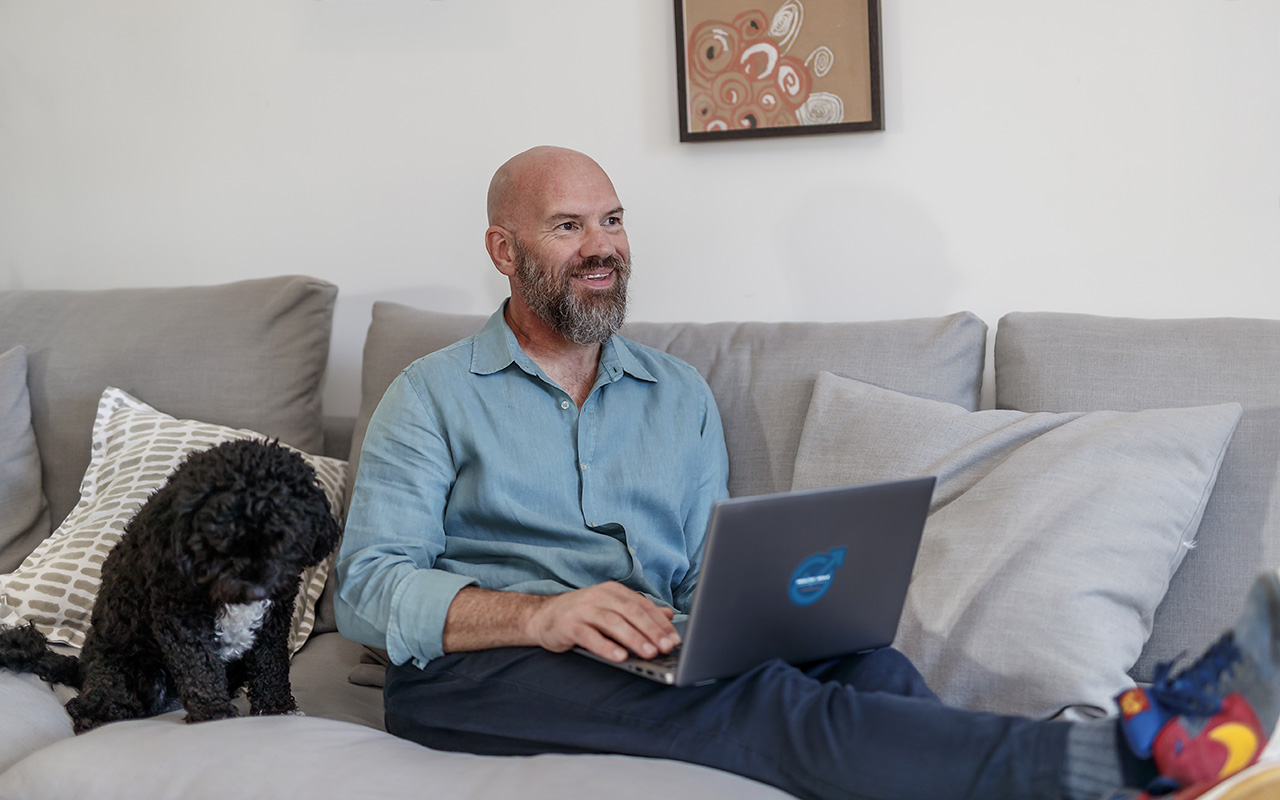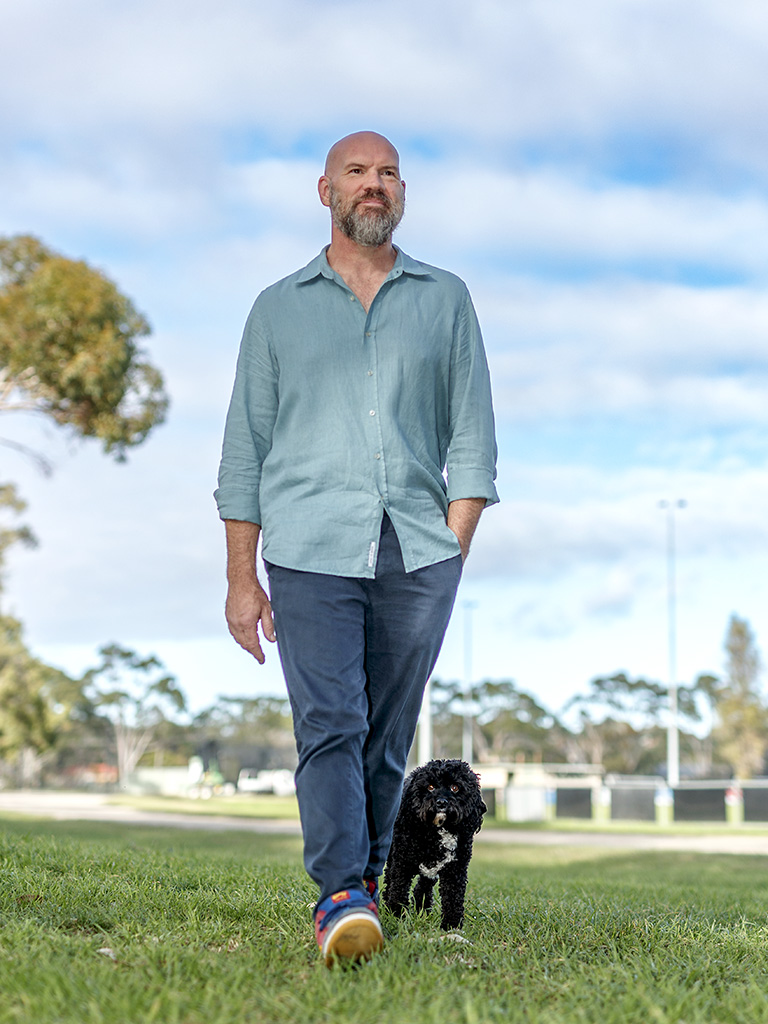By Brendan Rees

In 2019, Associate Professor Tim Moss decided to walk away from a decades-long career in medical research, to take the summer off and spend time with his teenage sons. It was meant to be a time to reset, enjoy life a little. He had become leader in perinatology – everything in the field of pregnancies and newborns – with a dedication to training research students. But then COVID hit, and he wasn’t sure what would come next.
Unbeknown to him, that unexpected pause would open a door to something completely different – and what he didn’t know he was looking for. A role came up at Healthy Male, a government funded not-for-profit organisation in Australia, focussing on providing evidence-backed information and resources on men’s health and well-being. It has now turned into a career he genuinely loves, including breaking down complex medical jargon into plain English and helping men make sense of their bodies, minds, and health choices.
“There’s a lot of conflicting evidence: in research; somebody does a study and shows that coffee is good for you and then the next week, you see a study that says coffee is going to kill you,” Tim, who grew up in Frankston and now lives in Rosebud, said. “Sorting out the wheat from the chaff in medical research is something that I quite like doing.”
As health content manager at Healthy Male, with a PhD in medicine, Tim plays a pivotal role in “Ask the Doc” series where he addresses a wide array of topics, some of which men may not normally be inclined to talk about including fertility concerns, sexual health, testosterone, mental well-being, and lifestyle choices. He’s also part of the newly launched “Dad Starts Now” podcast, which is helping men take charge of their health before trying for a baby and making the changes necessary to be the best dad possible.
“I like learning new things; I like helping people understand things. Teaching was one of the most fulfilling things that I did when I was a medical researcher, and I still have a hand in that now too,” Tim said.
Healthy Male was established almost 25 years ago, with their team of medical experts producing information for the public (through Healthy Male’s website), as well as education resources for GP’s and other health professionals. They also team up with Australia’s foremost clinicians in men’s health including educators and researchers in the field as well as advocating for men’s health.
Additionally, Healthy Male has partnerships with organisations like the Australian Men’s Shed Association and Movember, and collaborates with the Centre for Male Health at the University of Western Sydney on an annual campaign to raise awareness of men’s health issues.
“Each year, during Men’s Health Week, Healthy Male has a campaign to encourage men to look after themselves better, and this year we’re encouraging men to visit their GP’s earlier than they might otherwise,” Tim said.
The later that you see your doctor in the course of disease, the worse the outcome.
He said while men were generally concerned about their health, “…they tend to go to the doctor a bit later than a female might if she had the same symptoms”. “In some cases that can be a problem. If you notice a lump on your testis and you don’t go and get it seen to straight away and you’ve got testicular cancer, there’s a risk of that cancer developing. The later that you see your doctor in the course of disease, the worse the outcome.
“What we’re trying to do this year with Men’s Health Week (9-15 June) is to get blokes to recognise that their GP is the right person for them to go to when they have a concern about their health; they should consult their GP early.”
One of Tim’s biggest concerns? Misinformation online and a bunch of social media influences, whom he explained “might be very happy to provide health advice, but they’re not always well informed about what they’re providing advice about, and sometimes the advice is wrong”. “What we do at Healthy Male and my job in particular, is to make sure that the health information that we provide is the truth based on the best quality evidence.”
Speaking of men’s physical health broadly, Tim said the number of men meeting the national physical activity guidelines was high, with about two thirds of men getting enough exercise. “But when it comes to eating, we’re terrible at it. About two per cent of Australian men eat enough fruit and vegetables every day. Although our bodies are resilient, males tend to behave in some ways that are bad for our health.”
For example, he said eating a pie every day for lunch “is not going to cause you much harm but it’s the accumulation of that sort of behaviour over years that means by the time you hit 60, you’re carrying way too much weight”.
The bottom line from Tim: “The true value of Healthy Male is that it’s a place where you can go for reliable health information that’s true”. “We’re not trying to sell you anything – and that’s generally a pretty good way of knowing whether health information sources are valuable or not.”

